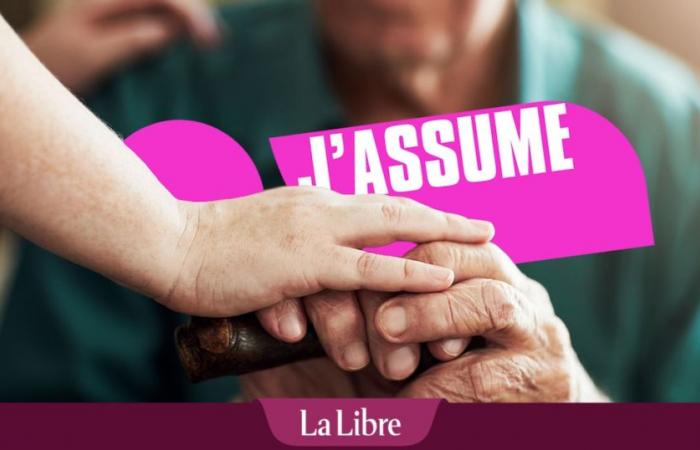Last weekend, I found in the Flemish press some emotional testimonies of sick people, on the verge of death. In their remarks, the afterlife was mentioned briefly, but almost immediately rejected. Is it not improbable, even unimaginable, that each man, individually, could be saved by a merciful God?
The hope of the past is replaced by a less ambitious hope, namely the hope of dying surrounded by loved ones, having had the opportunity to say goodbye to everyone in a setting of serenity, harmony and acceptance of inevitable death.
What happens to us when we die?
We can rejoice at this development, we can also regret it. Let's examine both avenues.
It is entirely legitimate to applaud the triumph of reason which, certainly, cannot contradict the existence of a beyond, but which will never be capable of providing proof of it. The heirs of the Enlightenment prefer certainty, the scientific method, proofs and figures. In such a context, final death has more advantages than the afterlife, for which eyewitness accounts remain very meager. Making certain death as beautiful as possible is, from this point of view, a more rational and wiser attitude than that of betting on an uncertain afterlife that is impossible to describe concretely. In the meantime, we can soften death as a definitive end by reinforcing the moment of farewell. We can console ourselves with the idea that the deceased continue to live on in the memory of their loved ones or in the lives of their children. But what do we remember about life, and especially about the ideas, fears and dreams of our ancestors from a few centuries ago? In short, reason undoubtedly needs some consolation, but it remains unshakeable in its conclusion: death is the end.
However, it remains entirely possible to regret this so-called rational path. Certainly, it excludes easy speculation. It leaves no room for earthly injustices, accepted in the hope of a distant eternal life. This is all true. But the absence of any attention to what is beyond us, to what is transcendent, also leads to a world which, in its contractual rationalism, risks starting in its wake a cruel and intransigent moralism, each time identifying the guilty. and the victims, the penalties and the compensation, weighed on a scale, without room for interpretation.
“When we invite the Pope, we must have the delicacy not to impose on him as the only truth the opinions of the secularized West”
Transcendence helps us to accept, but at the same time overcome, pure and simple rationalism. It begins by welcoming and stimulating scientific progress. Then, it opens up to unknown territories, sometimes tacit dreams, deeper hopes. Art, love, beauty go beyond simple knowledge.
This also applies to ethics. When she remains wise and rational, she will not exceed the do ut des, reciprocity, in the sense of 'I will treat you as you treat me'. Everything is calculated, everything is so fair that it becomes inhuman. A morality open to transcendence also includes mercy, generosity, giving and forgiveness, the unpredictable and the unimaginable, salvation despite everything.
I see a parallel between the man who makes up his mind by accepting death as definitive, rejecting a deeper hope, and the same man who constructs a rational and calculated ethic with no room for mercy and forgiveness.
And I wonder, without knowing the answer, if there is a link between the abandonment of the hope of eternal life and contemporary Western ethics, based on calculated justice and contractual reciprocity.
⇒ Title and editorial chapter. Original title: “Life and Hope”
“I take responsibility!”, the Tuesday lunchtime meeting
With “I assume!”, The Free offers an opinion meeting every Tuesday noon on its site. Columnists, coming from different and complementary horizons of thought, offer their arguments week after week on controversial and social questions.
Everyone speaks in a personal capacity. Their ambition is to invigorate an impertinent but quality debate alongside the major interviews, opinions, columns and carte blanche that The Free publishes daily. As with all opinions, the content of the texts is that of the authors and does not belong to the editorial staff of the journal.






